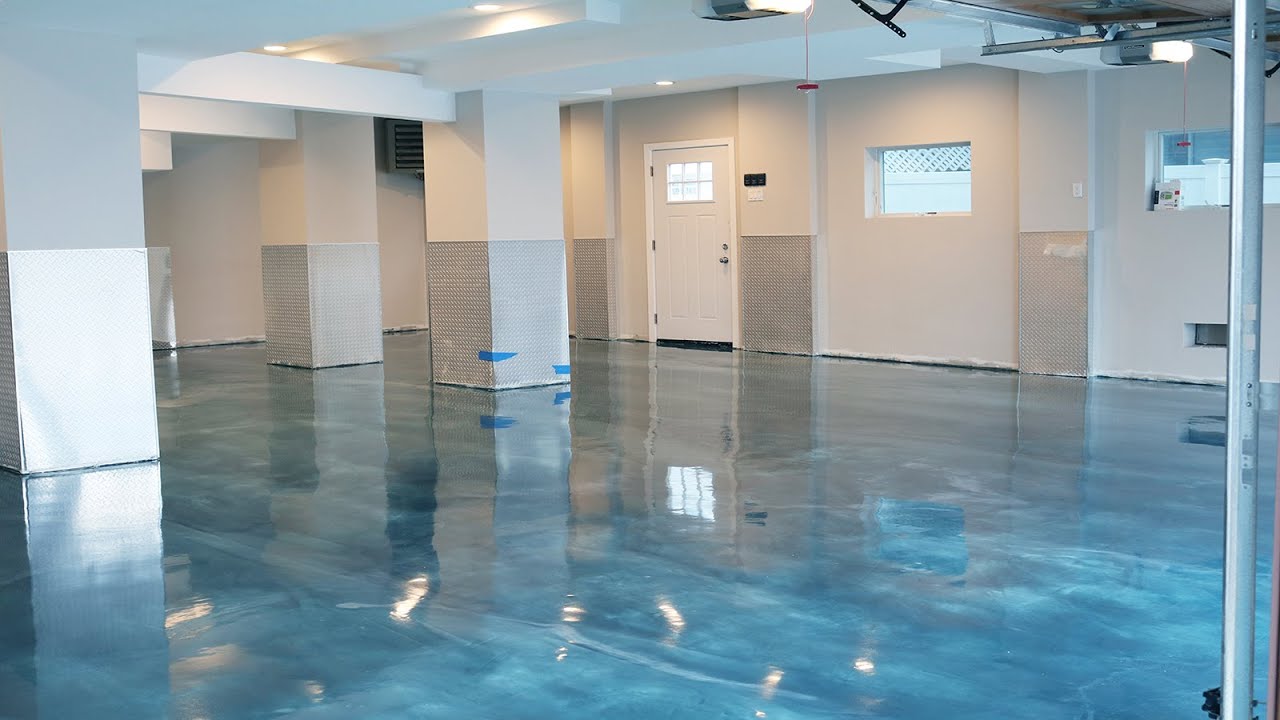·
Mar 30, 2025
Epoxy Resin Basement Floor: The Ultimate Guide to a Durable and Stylish Finish
When it comes to basement flooring, choosing the right material is crucial for both durability and aesthetics. One of the best options available today is epoxy resin basement flooring. Whether you're renovating your basement for extra living space, a home gym, or a workspace, epoxy resin offers superior strength, moisture resistance, and an attractive finish.
In this guide, we’ll explore the benefits, application process, and best practices for achieving a flawless epoxy resin basement floor.

Why Choose Epoxy Resin for Your Basement Floor?
Basements are often exposed to moisture, temperature changes, and heavy foot traffic. Traditional flooring options like carpet, wood, and tile may not withstand these conditions as well as epoxy resin. Here’s why epoxy is the ideal choice:
1. Moisture Resistance
Basements tend to have high humidity levels and potential water leaks. Epoxy resin creates a seamless, waterproof barrier, preventing moisture from seeping through the floor.
2. Durability & Longevity
An epoxy-coated basement floor is incredibly strong and resistant to wear and tear. It can withstand heavy loads, chemical spills, and daily foot traffic without chipping or cracking.
3. Mold & Mildew Prevention
Unlike carpet and wood, epoxy doesn’t absorb moisture, reducing the risk of mold and mildew growth—a common problem in basements.
4. Easy Maintenance & Cleaning
Epoxy flooring is smooth, non-porous, and easy to clean. A simple sweep or mop is enough to keep it looking new.
5. Stylish & Customizable Finish
With various colors, textures, and finishes, epoxy resin allows you to customize your basement flooring for a sleek, modern, or industrial look.

Factors to Consider When Choosing Epoxy Resin for Basement Floors
Not all epoxy resins are the same. Before purchasing, consider these important factors:
1. Type of Epoxy
There are different types of epoxy coatings:
- Water-based epoxy – Easy to apply, but not as durable.
- 100% solid epoxy – Strongest and longest-lasting, ideal for basement floors.
- Solvent-based epoxy – More durable but requires proper ventilation during application.
2. Thickness & Coverage
A thicker epoxy layer provides better protection and durability. Check the product's coverage to ensure it suits your basement floor size.
3. Slip Resistance
For safety, especially in high-moisture areas, consider anti-slip additives in your epoxy coating.
4. UV Resistance (If Your Basement Has Windows)
If your basement receives sunlight, UV-resistant epoxy prevents yellowing and fading over time.
5. Ease of Application
Some epoxy resins require professional installation, while others are DIY-friendly. If you plan to apply it yourself, choose an easy-to-use, self-leveling epoxy.

Step-by-Step Guide to Applying Epoxy Resin to a Basement Floor
Step 1: Prepare the Basement Floor
- Clean the surface thoroughly by removing dirt, dust, and grease.
- Repair cracks or holes with a concrete patching compound.
- Etch the floor using an acid wash or mechanical grinder to improve adhesion.
Step 2: Prime the Surface
A high-quality primer helps epoxy adhere better to concrete, especially in basements with previous coatings or sealants.
Step 3: Mix & Apply the Epoxy Resin
- Follow the manufacturer’s instructions for mixing.
- Pour the epoxy resin onto the floor and spread it evenly using a roller or squeegee.
- Use a spiked roller to remove air bubbles.
Step 4: Add a Second Coat (If Needed)
For extra durability, apply a second coat after the first one has dried.
Step 5: Let It Cure & Maintain Properly
- Allow the epoxy to cure for 24-72 hours before moving furniture or walking on it.
- Regular maintenance involves sweeping, mopping, and occasional resealing to maintain shine and protection.

Best Epoxy Resin Options for Basement Floors
If you’re looking for high-quality epoxy resin for basement flooring, consider these top-rated options:
1. Bond Craftor Epoxy Resin Basement Floor
- Features: Waterproof, durable, and resistant to stains and cracks.
- Best for: High-moisture environments, home gyms, and finished basements.
- Why Choose It? Provides a long-lasting, stylish finish with minimal maintenance.
- Get it here: Bond Craftor Epoxy Resin Basement Floor
2. Rust-Oleum EpoxyShield Basement Floor Coating
- Features: DIY-friendly, slip-resistant, and protective.
- Best for: Residential basements with moderate foot traffic.
3. ArmorPoxy 100% Solids Epoxy Coating
- Features: Industrial-grade, chemical-resistant, and thick coating.
- Best for: High-traffic or commercial basements.
How to Maintain an Epoxy Basement Floor
To keep your epoxy resin basement floor in top condition, follow these maintenance tips:
- Regular cleaning: Sweep and mop to prevent dirt buildup.
- Avoid harsh chemicals: Use pH-neutral cleaners to maintain shine.
- Prevent scratches: Place felt pads under furniture legs.
- Recoat if necessary: Over time, you can apply a new topcoat to restore the finish.
Final Thoughts
Upgrading your basement floor with epoxy resin is a smart investment. Not only does it provide waterproofing and durability, but it also enhances the overall aesthetics of your space. Whether you're turning your basement into a living area, home gym, or workshop, an epoxy resin basement floor will give you a long-lasting and stylish surface.
Looking for the best epoxy resin for basement floors? Shop now at Bond Craftor and transform your basement with a high-quality, professional-grade epoxy coating!


